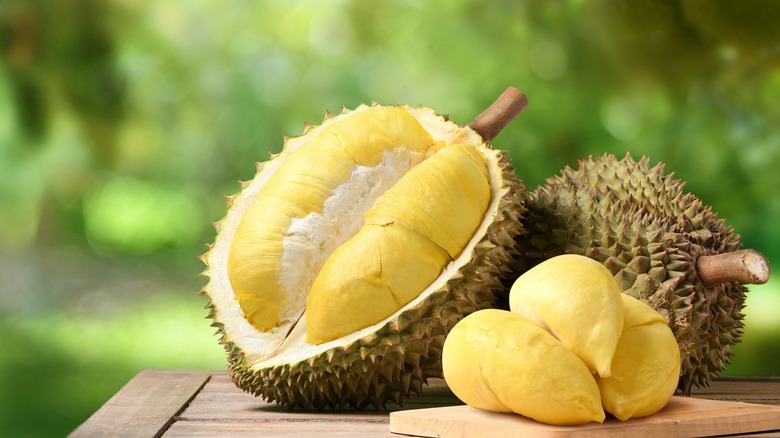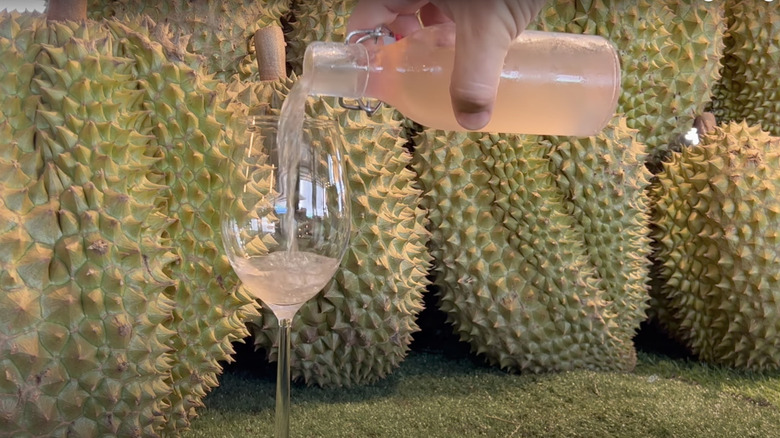Why Connoisseurs And Home Brewers Are Fascinated With Durian Wine
Chances are, even if you've never eaten a durian fruit, you've heard of them before. They appear with surprising frequency in video games (such as Super Mario Sunshine, where you can literally kick them around like footballs), and more prominently, they're a staple reference in cooking shows, where people often talk about their smell. That smell can be off-putting; many have compared the fruit's odor to rotten meat or sulfur, to the point where they're banned in airports, hotels, and public transportation in various countries in Southeast Asia.
Here's the thing, though: even if you find their smell unpleasant, you shouldn't let that fully put you off from the idea of consuming durian. Winemakers certainly haven't shied away, as there has been a growing interest in using durian to make wine, similar to how other fruits are frequently fermented into wines. This is intriguing for a couple of reasons: first, because the fruit offers complex flavors a lot of people might not be familiar with, and second, because the infamous smell itself diminishes when the fruit is turned into wine.
Durian is a great way for winemakers to explore new flavors
Winemakers are always interested in finding ways to turn non-traditional ingredients into new and interesting beverages. If your whole world is fermented grapes, why not experiment with other fruits to create delicious new concoctions? Durian is an intriguing choice here, because it's not a common fruit around the world, unlike oranges or pears.
The flavor of durian itself can be hard to describe, and can vary a lot according to personal taste. However, most describe the fruit as sweet, creamy, and custardy, with a soft texture that easily pulls apart. While some can't stand the flavor, others think it has notes of everything from mango to cheesecake to creamed corn. There's certainly no denying that it's a unique fruit, as there probably aren't many others that have as much flavor variance. Besides adding the typical sugar, yeast, and water, winemakers often enhance the flavors of the fermenting fruit with other add-ins, like lime or vanilla. However, at least in the western hemisphere, durian is rare, and that means it's not going to be as cheap as other fruits you could use in winemaking.
Durian wine doesn't smell like durian fruit
How do you get people who've been put off by the idea of durian (or who've experienced the smell for themselves and have been put off by it) to try the wine version? The most important thing is probably getting them to understand that despite what they've heard (or smelled), durian wine isn't going to have quite the same characteristics as the fruit itself. Once you ferment durian, the smell dissipates significantly, as the compounds that give it its unique aroma begin to break down. While this may actually disappoint aficionados who enjoy the smell, it's probably more appealing to broader audiences who are wary of it.
It's easy to see why winemakers find the idea of durian wine so intriguing. If you ever have the chance to sample it, give it a try; you might be surprised by the variation of experience from the fruit to the wine.


